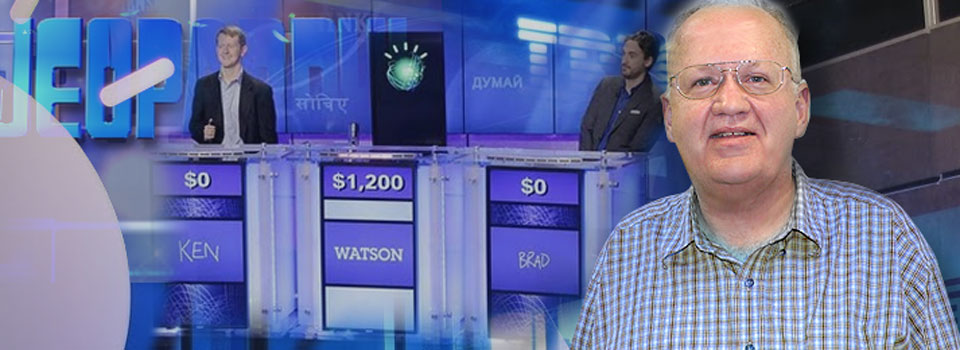When viewers tune into Jeopardy! this week (Feb. 14 – 16), they’ll witness the first-ever man vs. machine challenge on one of America’s favorite quiz show. An IBM computing system named “Watson” will compete against the show’s most successful and celebrated contestants to date – Ken Jennings and Brad Rutter — in a battle of intelligence and wit.
Watson, who was named for IBM founder Thomas J. Watson, was built by a team of scientists who set out to design a computing system that rivals a human’s ability to answer questions posed in natural language with speed, accuracy and confidence. The game show’s format will provide the ultimate challenge for Watson, because Jeopardy! clues often involve analyzing subtle meanings, irony, riddles and other nuances in which humans excel and computers traditionally do not.
In order to analyze Watson’s success or failure on the landmark quiz show, members of UGA’s Institute for Artificial Intelligence will gather around the television to watch the competition. UGA’s Institute for Artificial Intelligence is an interdepartmental research and instructional unit within the Franklin College of Arts and Sciences. The institute comprises both classical artificial intelligence, which focuses on getting computers to behave intelligently, and newer approaches to cognitive computing, in which the computer is seen as an extension rather than a model of the human mind. Unique features of the program include logic programming, expert systems, neural nets, genetic algorithms, natural language processing and computational psycholinguistics.
“As far as I can tell, Watson is not a specific breakthrough – they’re just taking a lot of existing technologies and implementing them on a grand scale,” said Michael A. Covington, senior research scientist and associate director of the UGA Institute for Artificial Intelligence. “Basically, they have a big cluster of really fast computers with a lot of memory, and they have developed good software that can arrange this collection of facts so that information can be retrieved quickly and effectively.”
Covington went on to explain that Watson’s creators are making their “contestant” understand English, since the sources and questions from Jeopardy! utilize the English language. In comparison to Google, which has the ability to retrieve a plethora of facts but only from exact word searches, Watson is able to look for alternative ways of recognizing and retrieving information.
“Watson is not conscious; Watson is not thinking like a human. It’s just utilizing a huge collection of facts effectively,” said Covington. “Whether or not Watson will win in ‘the lightning round’ remains to be seen.”
On the UGA faculty since 1984, Covington’s specialty is computer understanding of human languages (natural language understanding). In 1990, he won an award from IBM for a technique to recognize sentence structure in languages that have variable word order. Recently, he’s been developing software that reads the international news wires and detects emerging international conflicts and software that measures abnormalities of the speech of people who are mentally ill.
The Institute for Artificial Intelligence houses two degree programs, a master’s in Artificial Intelligence and a bachelors in Cognitive Science. More than 75 students hailing from over 10 different countries are enrolled in the program.
